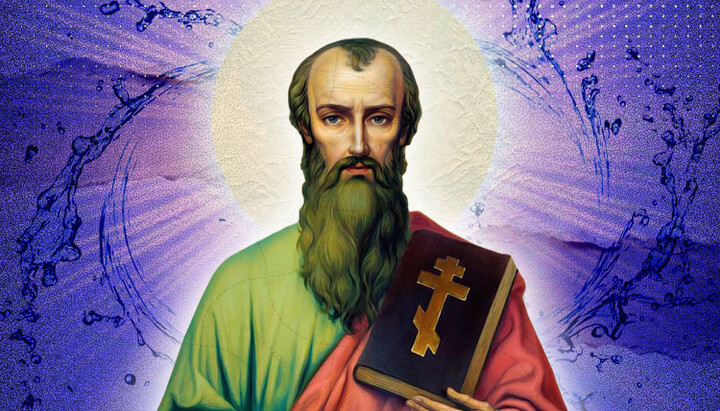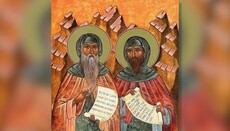"It is no longer I who live, but Christ lives in me": Apostle Paul's lesson

What does it mean "to be crucified" in the understanding of the apostle? Is Christianity really a religion of pain? Let's explore why it is impossible to become godlike without the death of the "old self".
"I have been crucified with Christ; It is no longer I who live, but Christ lives in me" (Gal. 2:19-20), the Apostle Paul declares resolutely, as if striking a hammer on an anvil. And we, hearing these words, involuntarily shudder and ponder: how can one speak of crucifixion with such enthusiasm? How can one completely renounce their "self," their personality, and boldly assert that Christ has fully penetrated with His Divine power into the body and soul of a sinful person?
The honesty of the Apostle
Undoubtedly, to make such an assertion one needs considerable spiritual experience. And the Apostle never lacked that. At the beginning of the Epistle to the Galatians, he recounts his miraculous conversion to faith, boldly revealing all the experiences that occurred in his soul.
The Apostle holds the view that his listeners must know everything about their teacher – not only about his missionary successes but also about his past failures, about how Saul the Persecutor became Paul the Apostle.
This is necessary not only to accept his appeal but also to firmly believe in Christ for the rest of one's life.
The evangelist is so candid that he is not afraid to speak even of what might initially repel his listeners from accepting the Gospel. For he speaks of the difficulties and sorrows that all believers in Christ inevitably experience. First, by showing through his own example that being crucified with the Savior serves as a guarantee of the soul's salvation for eternity, he convinces that true Christians are only those who "have crucified the flesh with its passions and desires" (Gal. 5:24).
More than just patience
Paul asserts that passive endurance of life's hardships is not enough to be saved. A purposeful, active struggle with one's "old self" is needed.
And indeed, let's look at our lives. One can endure an offense and, gritting one's teeth, endure reproach and slander. Outwardly, we will appear pious and calm. But with such outward patience, resembling stoicism, judgment, black anger, hatred, a thirst for revenge, or subtle vanity may lurk in the heart: "How great I am for holding back."
Can such patience be called salvific? Certainly not. It is the patience of a proud person who preserves their face but not their soul.
But if we sincerely pray for the offender, if we forgive the enemy not in words but in heart, and at the same time turn to God with the words: "Lord, have mercy on me, a sinner, and by his holy prayers have mercy!", then the burden of the worldly cross will truly become good and light. Why? Because at the moment of such repentance, we crucify the most important thing – our pride, our egoism, our arrogance. At this moment, we finally become crucified with Christ.
Heart surgery
It is extremely difficult to eradicate sin within oneself, especially when it has become a habit. We have merged with our passions; they have become our "second nature", our skin. And tearing off this dead skin is painful. But without such a painful operation, it is impossible to achieve the crown of spiritual life, which the Apostle Paul speaks of: "It is no longer I who live, but Christ lives in me."
These words are not just a beautiful metaphor. Such an inexplicable penetration of man into God and God into man is possible only when the human soul becomes godlike. For like is known by like, and like is united with like. Just as the Almighty God once took on the old nature of man for our salvation, so now man is called to accept the Fire of Divinity within himself.
The holy fathers often compared this state to iron placed in fire. The iron remains iron (a person does not lose their personality), but it acquires the properties of fire: it begins to glow, burn, and emit heat. So too does the soul, cleansed from the rust of sin, become a conduit of Divine grace.
Synergy: a Step by man and a step by God
The quoted passage of the apostolic epistle speaks of the mysterious synergy – the interaction of man and God, leading us to godlikeness.
St. Anthony the Great saw the goal of all human life precisely in godlikeness. Not merely in being a “good person”, not in adhering to a set of ethical rules, but in becoming a god by grace.
Only for this high goal do we sacrifice our earthly comfort and fleeting pleasures. Sometimes such renunciation brings sorrow and disappointment to a passionate person – like a child cries when a dangerous but beloved toy is taken away. But when he inwardly turns away from the external vanity of the world, when he stops feeling sorry for himself and looks with the soul's eyes into the spiritual world, then he will see before him the outstretched arms of the Heavenly Father.
God always waits
God does not hide from us. The Lord is always accessible and open to communication with us. It is we who often forget about Him, sinking into the mire of vanity, but He never forgets about us.
And when it seems to us that God has moved away from us, that Heaven is silent, it means only one thing: we ourselves have built a wall between ourselves and Him.
It means we have not trusted Him enough and have not worked hard enough in spiritual struggle, have pitied ourselves, and have not wanted "to be crucified".
But the path is open. And a person devoted to Christ, falling and rising, will again and again repeat after the Apostle Paul the words that are a hymn of Christian hope: "The life I now live in the body, I live by faith in the Son of God, who loved me and gave himself for me" (Gal. 2:20).












